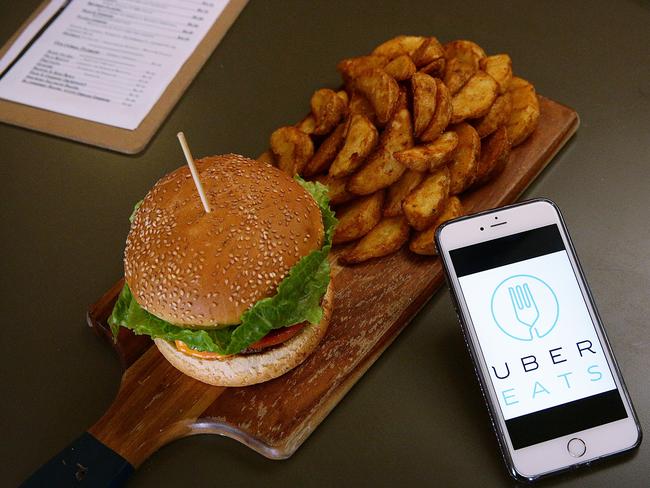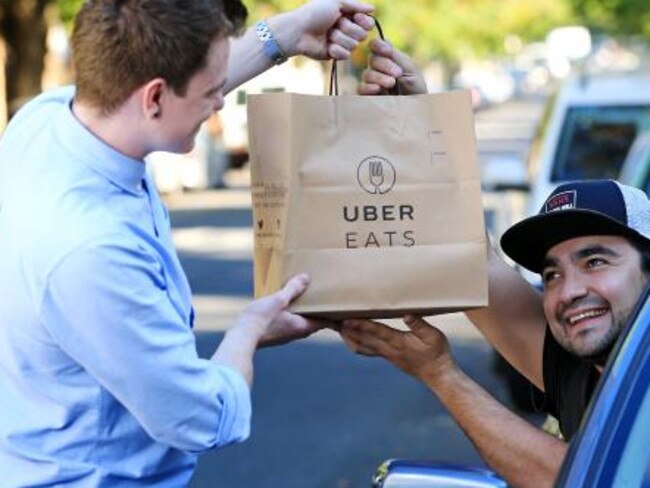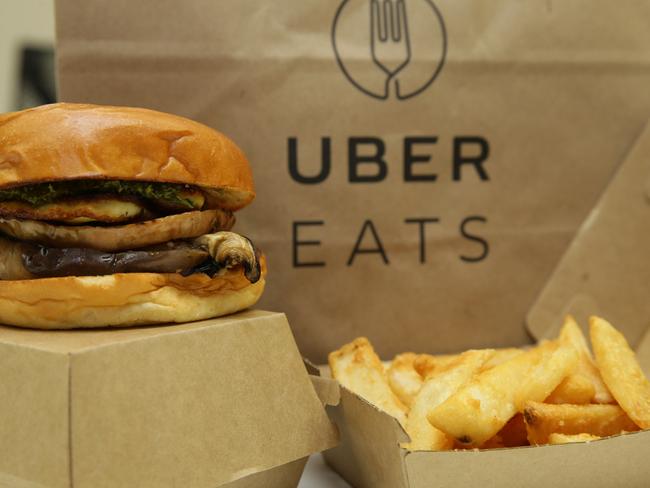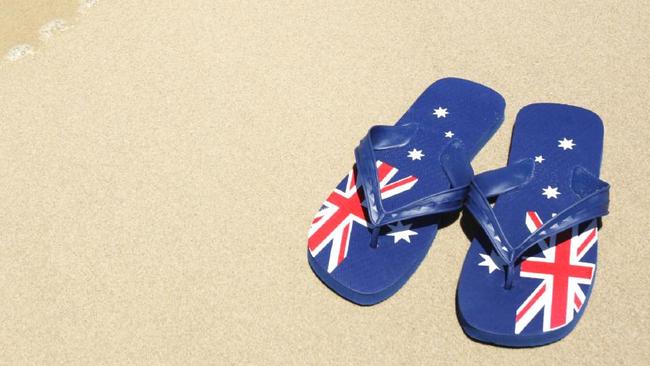Tom Elliott: UberEATS is making millennials fat, poor and awkward
FOOD delivery service UberEATS is the new smashed avocado for whingeing millennials, who blame everybody but themselves for their inability to buy a house, writes Tom Elliott.
Tom Elliott
Don't miss out on the headlines from Tom Elliott. Followed categories will be added to My News.
UBEREATS is the new smashed avocado for whingeing millennials.
This “snowflake” generation, which blames everybody but themselves for their inability to buy a house, thinks nothing of ordering two pricey takeaway meals a day delivered to their home or work.
MELBOURNE FOODIES LOVING FINE DINING AT THEIR FINGERTIPS
MILLENNIALS MORE LIKELY TO SUFFER LONG-TERM UNEMPLOYMENT
AUSTRALIAN MILLENNIALS BAD AT MANAGING THEIR MONEY
Thanks to their UberEATS addiction, Australians aged in their 20s and 30s are rapidly becoming fat, poor and awkward.
How did taking a humble (and cost-effective) sandwich to work become so unfashionable?
At 3AW, hardly a day goes by without several younger employees ordering lunch on their phones via the UberEATS app.
Typically, they spend $25 (plus a $5 delivery fee) to have a driver collect tacos/pizza/noodles/pho/burgers and deliver them to our office. This process is often repeated in the evenings after the same young workers arrive at home “too tired to cook”.
Two such takeaway meals a day, five days a week, amount to an annual expenditure of $14,400 (not including weekends or holidays).

This is a lot of money down the drain for convenience — better described as laziness.
Before UberEATS, young people either cooked for themselves — a dying skill now — or at least got off their bums and walked to the local takeaway.
Millennials, however, think differently. Why perform a task yourself when you can pay someone else to do it for you?
The same young workers who devour hand-delivered takeaway meals each day also love to complain. They bemoan the high cost of living; that their wages rarely cover essential expenditures like petrol, rent, utilities and the ubiquitous mobile phone bills.
An obvious solution for millennials’ perceived financial woes exists: Ditch UberEATS and bring a homemade sandwich to work, instead. And on Sunday evenings, ahead of the busy working week, cook up some bolognese sauce which, when teamed with easily heated spaghetti, provides a series of tasty, filling and cheap dinners. Very little culinary genius is required to produce such simple meals.
Yet when I suggested these ideas to my younger co-workers, their protests were immediate and loud. “But I’m a foodie!” cried one.
“My tastebuds require daily and varied stimulation.”
“UberEATS is so convenient,” opined another. “And the food is really good for you!”
What utter nonsense.

I’m so over this “foodie” culture.
Too many think that because they eat breakfast, lunch and dinner daily, they’re gourmets whose opinions on dining require sharing on social media. Yet nothing is more pathetic than young folk who photograph their meals rather than just eat them.
As to the Uber delivery service’s supposed health benefits, give me a break. The same co-worker who claimed takeaway meals were wholesome was later observed ordering a quarter-pounder with cheese, large fries and a thickshake from McDonald’s. Soon after, this “creative” lunch appeared at her desk courtesy of — you guessed it — UberEATS. No nutritional value whatsoever. And not even any exercise undertaken to collect the food in question. And thanks to its focus on junk food — and elimination of effort — UberEATS is making millennials overweight. One or two high-kilojoule, fat-laden meals a day do terrible things to the waistline. According to the Australian Medical Association, today’s 20-somethings might be the first generation in history to suffer reduced life expectancy, relative to their parents.
Hand-delivered fast food is a substantial cause of this problem.

UberEATS’ addictive convenience also drains wallets. Instead of paying cash at their local sandwich shop, the cost of every delivered meal is plonked on the fuss-free credit card. All gain and no financial pain now; but at $30-plus a pop, the UberEATS chickens come home to roost at month’s end when the bank statement arrives.
And because it reduces the need to step outside one’s front door, UberEATS also makes millennials socially awkward.
This is a generation whose members meet each other online (think dating app Tinder), prefer to converse via instant messaging rather than actual talking, and spend more time posting their experiences on Facebook and Instagram than actually living them. Genuine face-to-face interaction this is not.
Cooking and eating meals used to be regarded as a social event. UberEATS is killing that.
One young person I know has takeaway coffee delivered to her home at weekends. She is also very shy.
My advice? Abandon the UberEATS app. And walk to your local cafe for a coffee — and a chat — with the friendly barista.
Tom Elliott is 3AW drivetime host, weekdays 3pm-6pm


